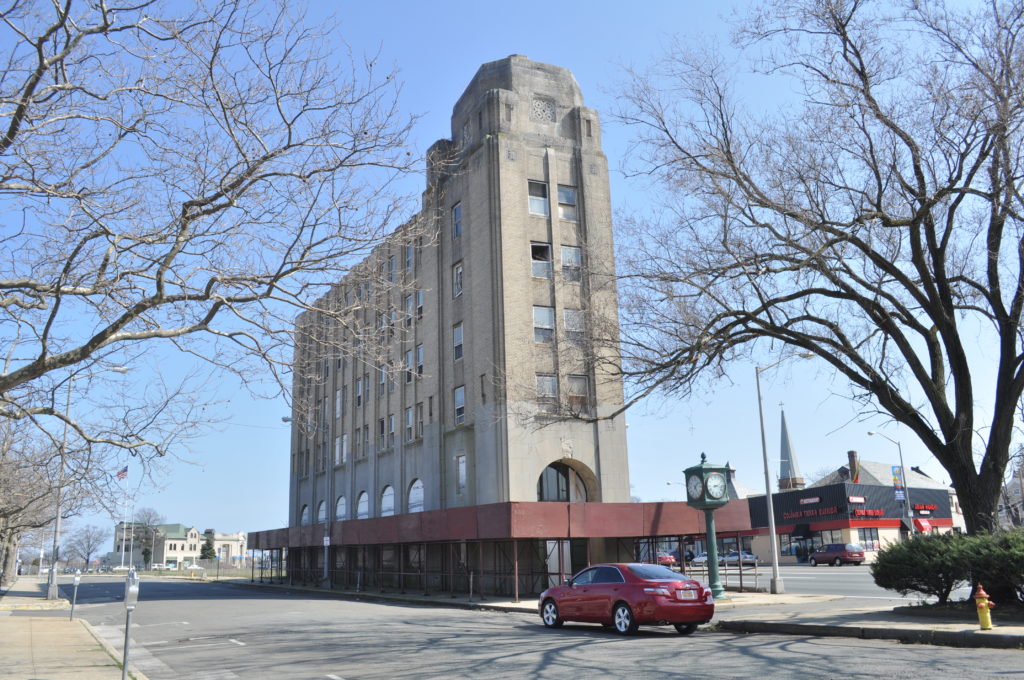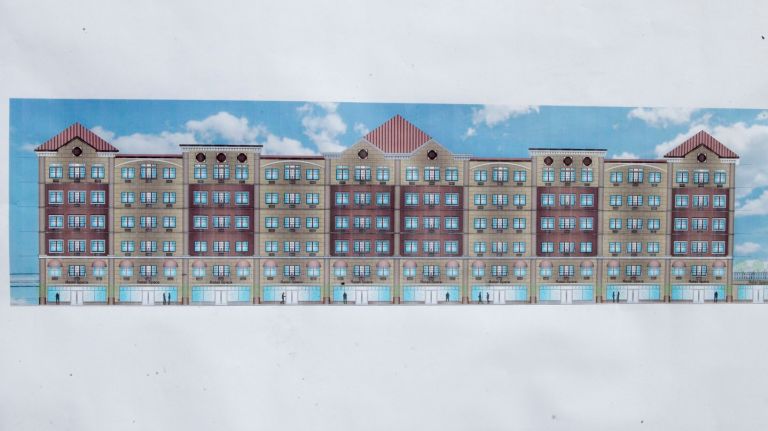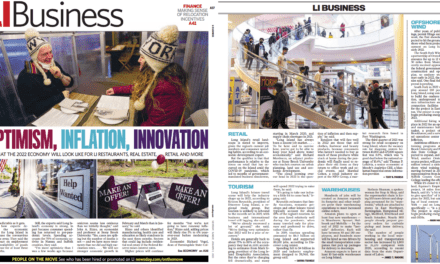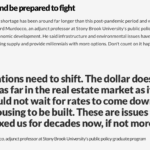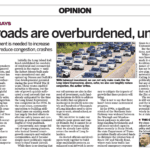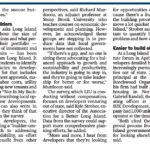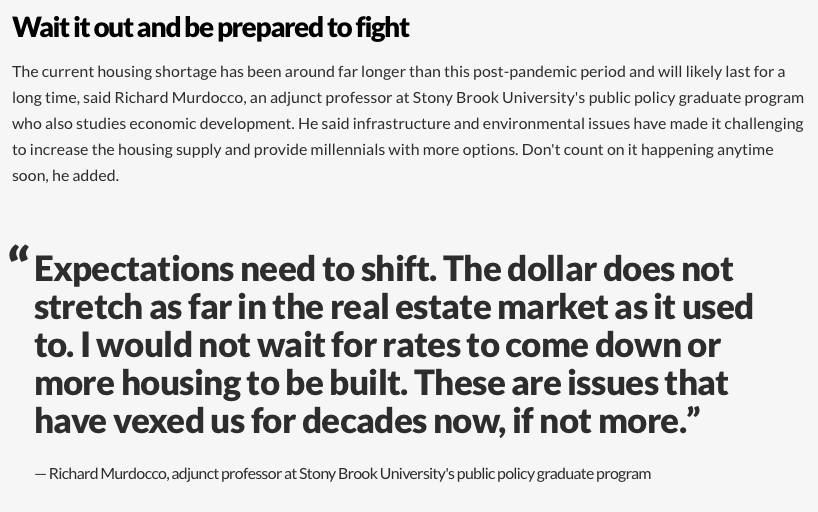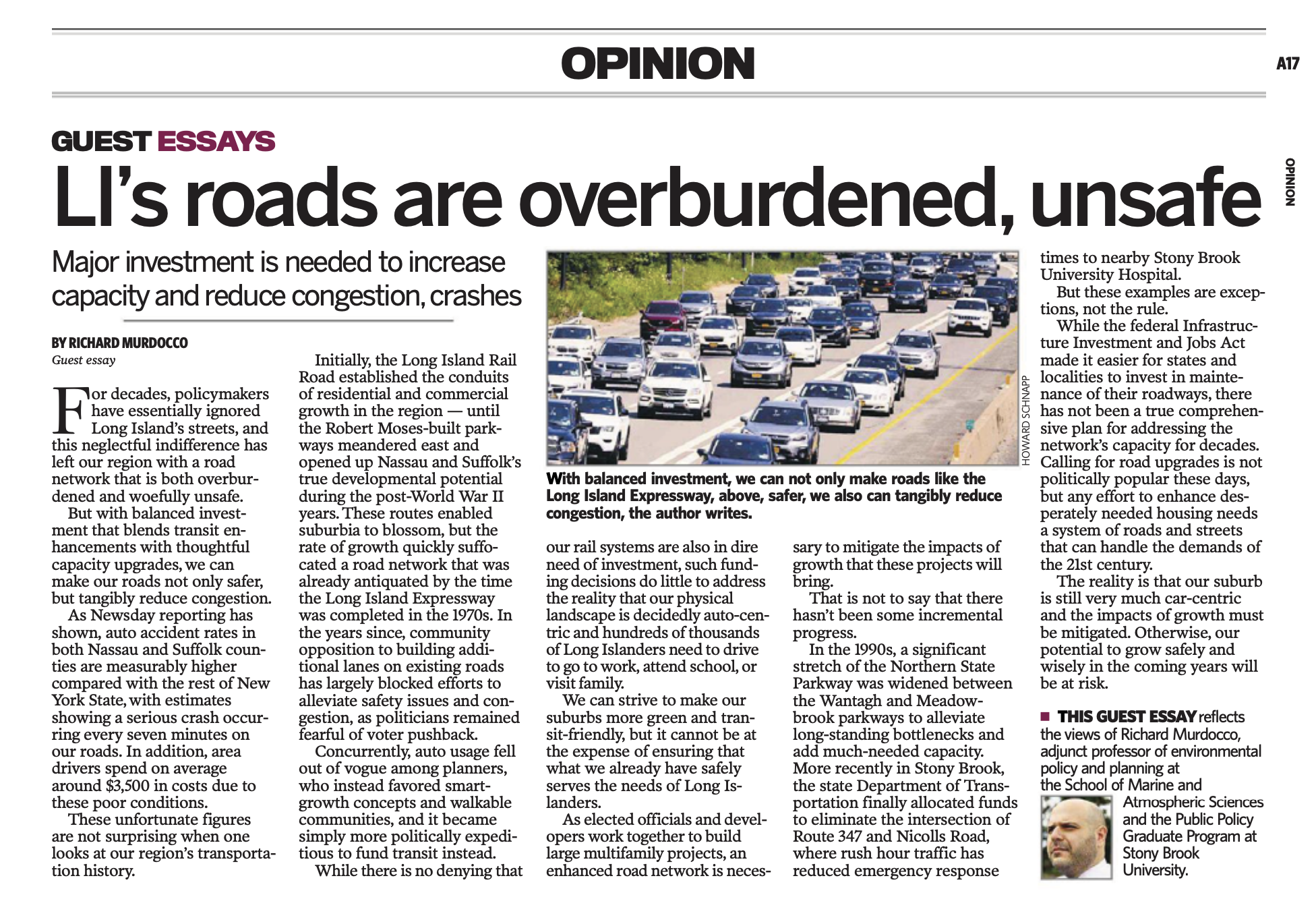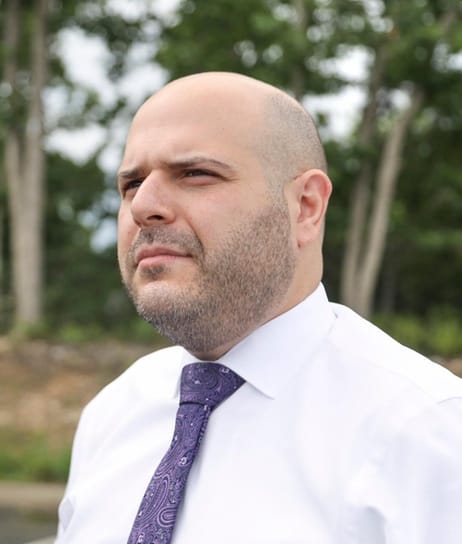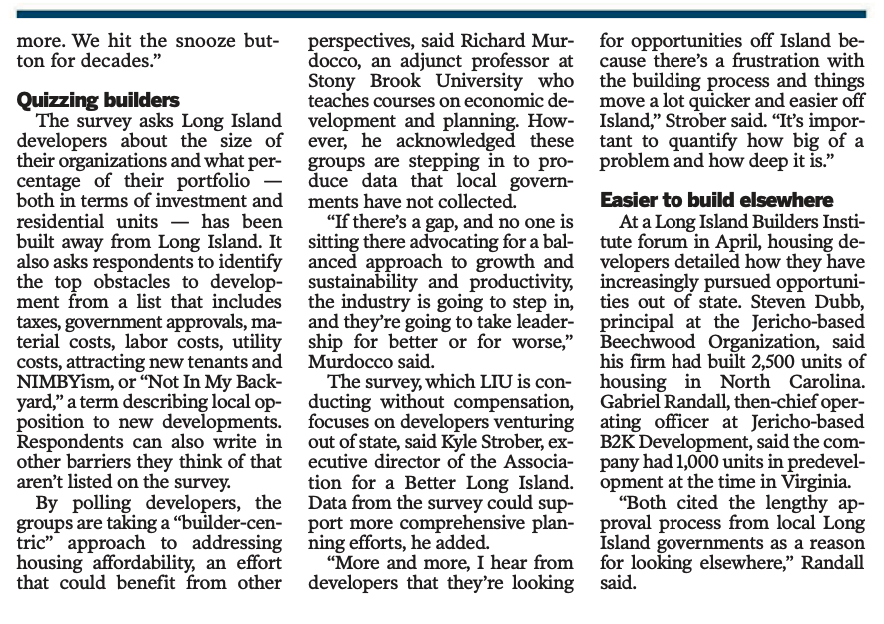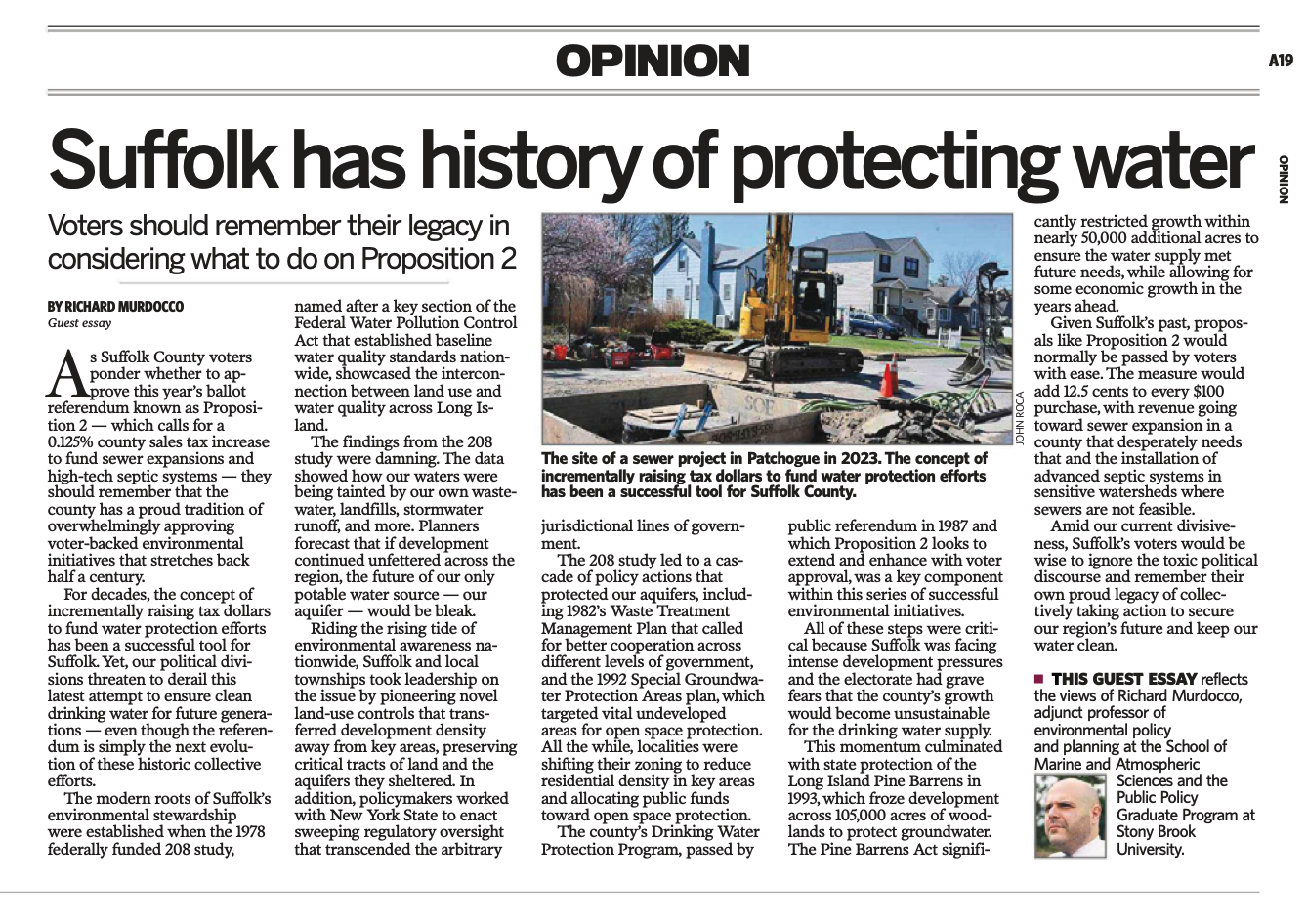The following was published exclusively on The Foggiest Idea on July 1st, 2019. Want to support The Foggiest Idea’s award-winning coverage of the issues that matter? Click here. In July 2020, this piece was recognized with a 2nd place award in the prestigious Narrative – Real Estate category by the Press Club of Long Island during their media awards ceremony.
By Richard Murdocco
Giving a luxury auto dealer the go-ahead to build a parking lot right in the heart of Freeport village mere steps from the Long Island Rail Road left residents scratching their heads – especially since a deal to transform the area into a downtown hub was already well underway.
As a result, one of the prime locations for transit-oriented growth in the region will be paved over by asphalt. What happened?
According to sources who spoke to The Foggiest Idea, a toxic cocktail of local politicking, deal-making, and plain old bad judgment is to blame.
First built in 1929, the six-story Meadowbrook Bank building stood tall above the expanse of low-slung turn-of-the-century structures that surrounded it, clearly defining the heart of the Village of Freeport.
Capped with limestone and bronze, and adorned in unique Mayan-style reliefs, the structure was at one time the tallest building on Long Island east of Jamaica. Its Art Deco accents represented an optimistic future that it never could live up to, considering that the landmark structure has sat vacant on the Plaza West site since the 1980s.
That’s not to say there haven’t been attempts to build there. In 2004, developers pitched a plan that included 235 one- and two-bedroom apartments, a glass-enclosed rooftop pool, 23,000 square feet of retail space, underground parking and more, but it went belly up.
In 2017, the Meadowbrook Bank was slated to become the anchor of a $60-million, mixed-use downtown project on Freeport Plaza West that would have housed 15,000 square feet of retail and 250 rental apartments by the DiNoto Group, a Woodbury-based real estate investment firm. But then the village balked at the sale, and the abrupt change-of-course resulted in ongoing litigation between Freeport and the developers. The dispute is still active as of this writing.
While both sides of that proposal lawyered up, recent approvals by the village primed the 4-acre site for another use: a parking lot for a 40,000 square foot Lexus dealership in John Staluppi’s Atlantic Auto Group. Staluppi is a larger-than-life figure who is just as interesting as the site his group purchased for $6.3 million. He’s known not only for the massive network of auto dealerships he owns, but for the record-setting super yachts he has built through his Millennium Yachts venture. Each vessel is named after a James Bond film, such as Moonraker, The World is Not Enough, and Spectre, to name a few.
Meanwhile, back on land, the village’s decision-making with the Freeport Plaza site leaves much to be desired. With the Atlantic Auto deal, Freeport Village Mayor Robert Kennedy has demonstrated why he isn’t exactly in the same league as Patchogue Mayor Paul Pontieri, who nurtured the economic investment and redevelopment of historic assets throughout his village with mixed-use development and proved he had a unique knack for working with town and county governments to get things done.
A Freeport native, David Chauvin, the executive vice president of Great Neck-based PR giant Zimmerman/Edelson, has been a village resident for more than four decades. Given his local roots, Chauvin is not at all pleased by this recent turn of events.
“I am devastated by this,” he told TFI. “This isn’t a NIMBY issue. It’s not like we’re trying to stop progress,” he said, adding that he supported the mixed-use option. “It’s a physical keystone of the village, and we’re all like, really? We’re doing this? None of it makes any sense.”
Some observers told TFI that village officials had acted strangely, to put it mildly, throughout the approval process that ended up with the Atlantic Auto Group winning unanimous approval from the Freeport’s board of trustees this April. They took an unprecedented action with little or no fanfare, leaving many local residents in the dark as the officials departed from previous planning policy.
In one instance, a resident claimed that Kennedy was particularly hands on with the transaction, going so far as to sit in the front row of governmental hearings on the subject. Another resident questioned why Deputy Mayor Jorge Martinez, a board member of the pro-smart growth organization Vision Long Island, sided with the rest of the Freeport trustees to support the site’s sale to the Atlantic Auto Group. Vision Long Island has called for transformative transit-oriented redevelopment at the Plaza West site and others like it across the region. Why not here?
The final nail in the mixed-use coffin was handed down by Freeport’s Zoning Board of Appeals in May. According to coverage in Newsday, Mayor Kennedy attended the final ZBA hearing on the auto dealer proposal. Typically, a ZBA votes on mundane things such as side-yard variances that allow changes to the required space allotments between a structure and the end of a property, or the maximum amount of square feet that a structure can occupy on any given parcel of land. At certain times, this governing body can make or break larger projects that require zoning allowances or variances.
At the May 24th meeting, the Freeport ZBA voted 4-to-1 in favor of the auto dealership project, with only Charles Hawkins in the opposition.
According to observers at the hearing, Freeport Village Attorney Howard Colton tried to hamper Hawkins when he sought to raise questions about the deal with the dealership. Colton also allegedly engaged in a persuasive dialogue with ZBA chairwoman Rosa Rhoden, who was on the fence about the proposal.
After the meeting when Newsday asked Rhoden about her vote, she declined to comment.
Even Nassau County, not known as being a bastion of sound planning, as TFI has made clear over the years, took a positive stand on the Freeport issue. In June, the Nassau County Planning Commission, which offers recommendations to municipalities on zoning referrals and advice to elected officials on development decisions, voted unanimously to issue a denial for the Lexus dealership development.
By law, the commission is tasked with the review of zoning actions referred by local governments in order to provide its input on projects that may have an impact across municipal boundaries or that may be of regional significance.
The commission reportedly denied the zoning change because its members felt that a transit-oriented development is more appropriate for the site. But according to Freeport’s Colton, the county commission’s vote doesn’t matter much since the local Zoning Board of Appeals already gave its approval with a super-majority vote.
But insiders with close knowledge of the workings of the county planning commission have told TFI that the deal for Plaza West is not as finalized as the village claims. They contend that the village’s approvals may be null and void since Freeport didn’t wait for the county planning commission’s formal review.
“It’s a referral, and they still have local control,” the insider told TFI. “The county only provides advice, but the effect is that it now requires a super-majority vote.” As these sources see it, the county’s formal denial will likely include a letter from Nassau lawyers arguing that Freeport’s approval process was backwards.
“The hearing was supposed to happen after the county vote,” the source explained. “That way, if people are making public comments, they can cite the planning commission’s review in their remarks. The county is supposed to inform the hearing, and from their understanding, the ZBA vote already happened.”
The village administration is defending Freeport’s actions by claiming that now is the time to finally move forward.
“The site has been on sale for 30 years,” Freeport Mayor Robert Kennedy told TFI. “The residents have expressed what their desires are, and the majority seem to be in favor of Lexus coming in.”
The mayor held no punches about what will be going up on the site.
“It will be a Lexus dealership,” he said firmly. Kennedy noted that the small village already contains plenty of luxury auto dealerships so bringing in Lexus would be just a nice addition. “We’ll finally be adding to the tax rolls and removing a building that is dangerous and unsafe at best.” In local reports, Kennedy has estimated that the cost of renovating the landmark building to code would be about $10 million.
The mayor wasn’t too concerned about Nassau County’s stand on the planning issue.
“I don’t necessarily agree, and I haven’t seen anything from the county,” he said. “I can’t comment on their comments. I’ve received no resolution from the county planning board, but as I said, village residents have spoken and spoken clearly.”
“If they suggested they want T.O.D., where would they put the people and cars?” he asked. “I don’t see Nassau developing it anytime soon, and I’d rather go with the bird in the hand than two in the bush.”
As the mayor sees it, the luxury dealership will bolster Freeport’s bottom line.
“I’m looking forward to bringing the annual tax revenue we’ve been missing out on for 30 years,” he exclaimed.
Apparently, the county doesn’t share that perspective.
“The purpose of the zoning there was for transit-oriented development,” a county insider told TFI. “It’s almost ironic to turn around and sell cars at the site. That’s as much opposite as you can get.”
UPDATE: Since publication, the Village of Freeport had abruptly cancelled a scheduled public hearing on the dealership proposal, originally slated for July 9, 2019 at 7 PM. You can find that meeting’s original agenda here.
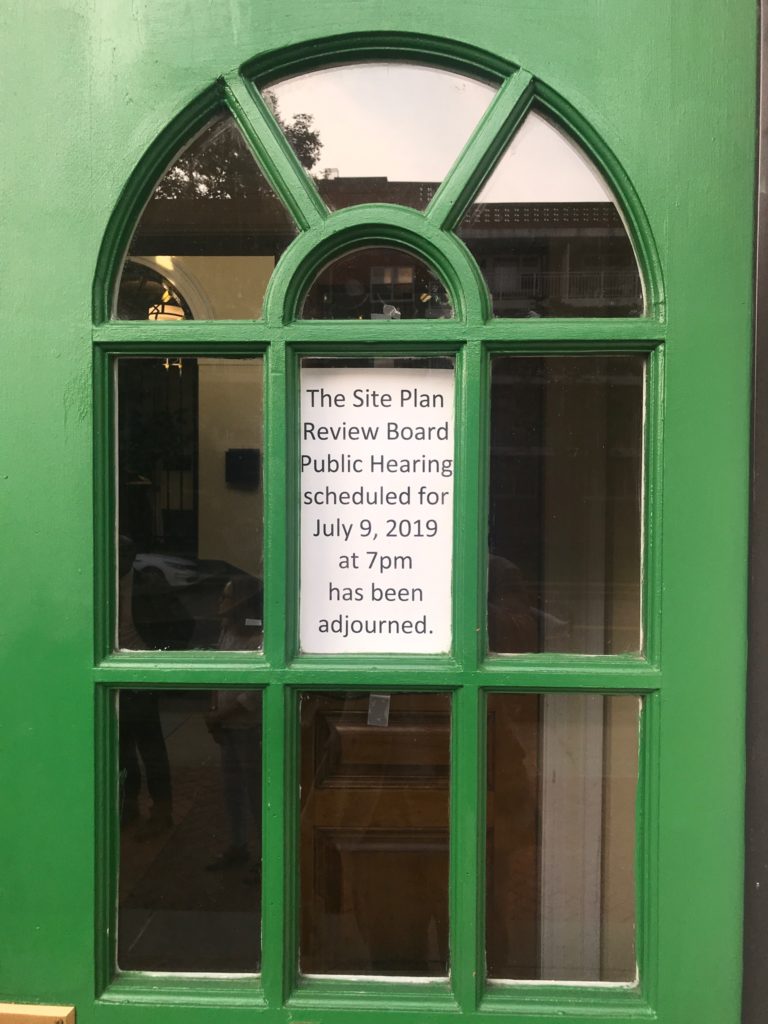
A photo, provided to TFI by local residents, shows a sign announcing the cancellation of the village’s site plan review board’s public hearing.
Richard Murdocco is an award-winning columnist and adjunct professor in Stony Brook University’s public policy graduate program. He regularly writes and speaks about Long Island’s real estate development issues. You can email Murdocco at Rich@TheFoggiestIdea.org.

